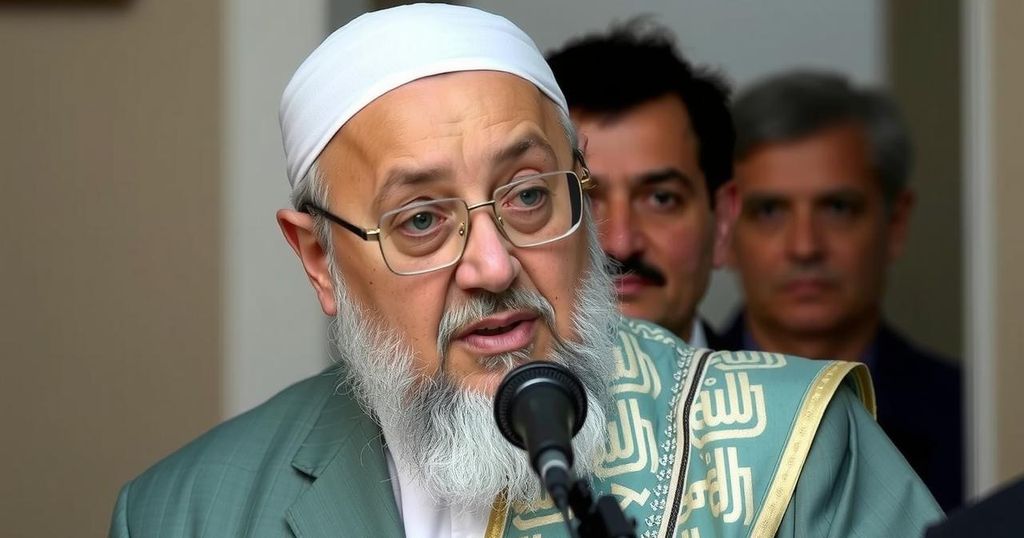The family of Abdulrahman Al-Qaradawi is urging Lebanese Prime Minister Najib Mikati for his release from detention in Lebanon. Accused of malign activities based on a 2017 ruling in Egypt, they claim the charges are unjust. Concerns mount over potential extradition to the UAE, as legal experts warn this could violate international conventions regarding torture and human rights abuses.
The family of Egyptian poet Abdulrahman Al-Qaradawi has urged Lebanese Prime Minister Najib Mikati to facilitate his immediate release from detention. Currently residing in Lebanon, Al-Qaradawi’s family alleges that his imprisonment stems from “malicious accusations” based on a 2017 ruling in Egypt, which occurred as part of a broader crackdown on dissent under the al-Sisi regime. They expressed serious concerns for his safety in light of Lebanon’s potential extradition to a country known for human rights abuses.
Al-Qaradawi was sentenced in absentia for charges related to his literary work, which the Egyptian government deemed critical of its authority. His family, now residing in Turkey, holds Prime Minister Mikati accountable for protecting their son’s welfare. They emphasized that extraditing him would threaten his life, pointing out that Al-Qaradawi’s criticism included remarks against certain Arab regimes and Zionist influences, leading to heightened scrutiny and pressure against him.
Speculations arose regarding Lebanon’s possible extradition of Al-Qaradawi to the United Arab Emirates, especially with a parliamentary session scheduled in Beirut before January 9. Legal experts argue that such an extradition would violate Lebanese and international laws, particularly as no treaty exists between Lebanon and the UAE, a nation with a poor record on human rights.
International law specialists caution that Lebanon’s adherence to the United Nations Convention against Torture dictates that it cannot send detainees to countries like the UAE or Egypt, where they may face torture or unjust treatment. Al-Qaradawi was apprehended upon returning from Syria after reports indicated collusion between Egyptian and Lebanese authorities to capture opposition figures living abroad.
Abdulrahman Al-Qaradawi, a prominent Egyptian poet and the son of the late Sheikh Yusuf Al-Qaradawi, has found himself embroiled in legal complications due to his outspoken criticism of the current Egyptian regime. The unrest surrounding his detention in Lebanon highlights the tensions between governments and advocates of dissenting voices in the Arab world. The poet’s prior involvement in the Egyptian revolution further complicates his position, as he has faced significant backlash due to his advocacy and literary contributions against authoritarian governance. The case raises critical questions about human rights practices in the region, particularly concerning extradition laws and the safety of political dissidents.
In summary, the family of Abdulrahman Al-Qaradawi seeks justice and protection for him amidst troubling allegations and legal complexities in his detention. Their appeal to Lebanese authorities reflects broader concerns about human rights and the treatment of dissidents in the Middle East. As his case unfolds, it remains imperative to scrutinize the legal and ethical implications of extradition, especially given the risks Al-Qaradawi might face if returned to countries with a notorious track record for human rights abuses.
Original Source: www.newarab.com






